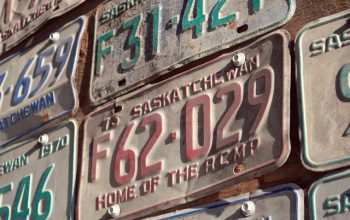To avoid penalties and ensure compliance with state laws, it's imperative to timely renew your DMV registration for your vehicle. This can be efficiently done online through the official state website, which offers an easy-to-use car tag renewal process. The online system guides you step-by-step through the required information input, including confirmation of identity and vehicle details, proof of insurance upload, and payment of any applicable late fees. For those whose registration has lapsed beyond a grace period, additional steps may include an in-person DMV visit due to stricter verification requirements. It's crucial to stay updated on your registration status and understand the motor vehicle registration renewal fees to maintain legal operation on public roads and avoid unnecessary fines. Regularly checking your car tag renewal status online is recommended for a seamless renewal experience.
When your vehicle’s registration lapses, prompt action is necessary to adhere to state regulations and evade associated fines. It’s a routine yet critical task that ensures your car tag is valid at all times. This article navigates the essential steps for renewing your motor vehicle registration through DMV channels, emphasizing the online process for convenience and detailing the protocols for registrations that have been lapsed for an extended duration. Understanding the implications of an expired registration is the first step towards compliance, followed by a clear guide on the renewal procedures, including the fees involved. Whether you opt for the online DMV registration renewal or need to visit an office in person, this comprehensive resource will equip you with the necessary information to handle your car tag renewal efficiently and legally.
- Understanding the Consequences of Expired Vehicle Registration
- Step-by-Step Guide to Renewing Your Vehicle Registration Online
- In-Person Renewal Process and Handling Long-Term Lapsed Registrations
Understanding the Consequences of Expired Vehicle Registration

Failure to renew your vehicle registration on time can lead to a cascade of inconveniences, ranging from minor fines to more severe legal ramifications. It is crucial for drivers to be aware of their registration expiration dates and initiate the DMV registration renewal process promptly to avoid such outcomes. The consequences of an expired vehicle registration include not only fines but also the inability to legally operate your car on public roads, which could lead to additional charges if you are stopped by law enforcement. To mitigate these risks, it is advisable to familiarize yourself with the renewal of vehicle registration fees and procedures. Most states allow for the convenience of an online car registration renewal process, which can be completed from the comfort of your home. This electronic method not only saves time but also ensures that your car tag renewal is processed without delay. However, if it has been a considerable length of time since your registration lapsed, you may be required to submit additional documentation or visit a DMV office in person. It is important to check with your state’s DMV for specific requirements and to understand any late fees that may apply. Regularly checking the status of your vehicle’s registration ensures compliance with state laws and avoids the accumulation of fines, keeping you legally on the road.
Step-by-Step Guide to Renewing Your Vehicle Registration Online

To commence the online renewal process for your DMV registration, begin by visiting your state’s official Department of Motor Vehicles (DMV) website. This platform will facilitate the entire process, ensuring a streamlined experience. Key in your personal information along with your vehicle’s details as prompted. Ensure that you have your current registration on hand, as this may be required to verify your account and renewal eligibility. Once your identity and vehicle ownership are confirmed, proceed to upload proof of insurance. This is a critical step to avoid penalties in case of an accident or traffic stop. After submitting all necessary documentation, the website will calculate your renewal of vehicle registration fees. These fees often include any late charges if your registration has lapsed beyond the grace period. Review the total cost, which will be due upon submission. If everything is in order, finalize your transaction using a secure payment method, typically credit card or electronic check. A confirmation notice and temporary registration will usually be provided immediately after successful payment, serving as your receipt until your new permanent tags arrive by mail. It’s imperative to keep this confirmation notice accessible for law enforcement during transit. In the event that your registration has expired for over a year, state regulations may necessitate an in-person visit to the DMV office. This requirement ensures a thorough verification process and is typically applicable for registrations with significantly overdue renewal dates. Always consult your specific state’s guidelines to determine the correct course of action for your situation. Regularly checking your registration status via the DMV website or contacting your local DMV office can help you stay proactive and in compliance with state laws, thus avoiding any potential fines or legal complications.
In-Person Renewal Process and Handling Long-Term Lapsed Registrations

When an individual’s vehicle registration has lapsed beyond a grace period, it is imperative to address this promptly to avoid accumulating fines and potential legal complications. The process for renewing a motor vehicle registration that has been expired for an extended duration typically requires an in-person visit to the Department of Motor Vehicles (DMV). This step ensures that all necessary documentation can be reviewed and verified by DMV personnel. Applicants must present their vehicle’s current registration details, proof of insurance, and any required late fees due to the delay. The specific requirements may vary by state, but generally include a completed application form for DMV registration renewal, identification verification, and ensuring that the vehicle’s information aligns with the state’s records. This in-person visit is crucial for resolving any issues that cannot be addressed through online systems and for updating the vehicle’s records to reflect the current status of registration.
For those whose registrations have simply expired recently, many states offer the convenience of an online car registration renewal process. This streamlined approach allows individuals to complete their DMV registration renewal from the comfort of their home or office. The online portal requires users to input their vehicle’s information, proof of insurance, and pay any applicable renewal of vehicle registration fees. It is advisable to double-check the state’s official website for specific instructions and to ensure that all information entered is accurate to avoid further delays or complications. Regularly monitoring your registration status through these online services can facilitate a smoother process in maintaining compliance with state laws, thereby avoiding unnecessary penalties and ensuring continuous, legal operation of your vehicle on public roads.
To ensure road compliance and avoid potential fines, promptly renewing your DMV registration is a critical step for vehicle owners. Whether through the online car registration renewal process or by visiting a local DMV office, maintaining up-to-date motor vehicle registration is essential. Remember, while many states offer a grace period, it’s prudent to renew your car tag without delay. The renewal of vehicle registration fees and adherence to state laws are paramount for legal road use. Keep your vehicle information and proof of insurance handy, and regularly check your registration status to stay compliant and avoid any inconvenience.



